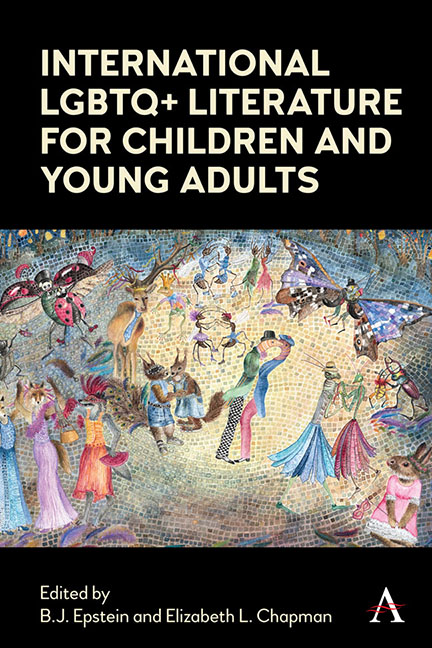Book contents
- Frontmatter
- Dedication
- Contents
- List of Illustrations
- Acknowledgements
- Notes on contributors
- Introduction
- BRAZIL
- FRANCE
- GERMANY/ AUSTRIA
- GREENLAND
- INDIA
- INDIGENOUS WRITING
- ITALY
- MULTINATIONAL
- MULTINATIONAL
- MULTINATIONAL
- THE PHILIPPINES
- SLOVENIA
- SOUTH KOREA
- SPAIN
- SWEDEN
- SWEDEN
- List of Primary Texts
- Index
Chapter Seven - LGBTQ Families and Picturebooks: New Perspectives in Italian Children’s Literature
Published online by Cambridge University Press: 18 November 2021
- Frontmatter
- Dedication
- Contents
- List of Illustrations
- Acknowledgements
- Notes on contributors
- Introduction
- BRAZIL
- FRANCE
- GERMANY/ AUSTRIA
- GREENLAND
- INDIA
- INDIGENOUS WRITING
- ITALY
- MULTINATIONAL
- MULTINATIONAL
- MULTINATIONAL
- THE PHILIPPINES
- SLOVENIA
- SOUTH KOREA
- SPAIN
- SWEDEN
- SWEDEN
- List of Primary Texts
- Index
Summary
Introduction
LGBTQ families and civil rights is a current hot topic in Italy. In June 2016, the Italian government approved a law that recognizes same-sex unions. The subject is still quite delicate and much discussed, but the country is slowly opening up to new realities. In particular, children's picturebooks presenting non-traditional families are becoming more and more popular. Among the Italian publishers whose aim is to promote diversity in children's literature, Lo Stampatello is one of the most active and innovative. The publishing house was created by Maria Silvia Fiengo and Francesca Pardi, a couple interested in queer families and gender identity. After a brief introduction to the Italian social and cultural context concerning LGBTQ identities, this chapter will present picturebooks written, illustrated and translated by Italian writers and artists. In particular, the chapter will focus on Lo Stampatello's works, considering both their merits and weaknesses. On the one hand, its picturebooks are opening the way to ‘taboo topics’ in children's literature; on the other, much has to be done to provide children with books of greater quality and depth.
Civil Rights in Italy: A Brief Historical Background
The topic of LGBTQ rights is usually perceived as extremely delicate and controversial by the Italian population. On the one hand, Italians are slowly opening up to new realities and accepting differences in sexual orientation; on the other, the country is still conservative and suspicious about LGBTQ lives, which are usually imagined in a highly stereotypical way in popular media (Malafreca 2007; Malici 2012).
First of all, same-sex encounters have been considered legal since 1887, when the Zanardelli Code2 was promulgated. In spite of this, during Mussolini's reign homosexuals were regularly persecuted or exiled since they were thought to act against moral and religious beliefs. As a matter of fact, the first draft of Codice Rocco (1930) included an article that limited LGBTQ rights; however, the article was rejected since homosexuality was considered a minor problem in fascist Italy (Rossi Barilli 1999, 20).
- Type
- Chapter
- Information
- International LGBTQ+ Literature for Children and Young Adults , pp. 129 - 146Publisher: Anthem PressPrint publication year: 2021

